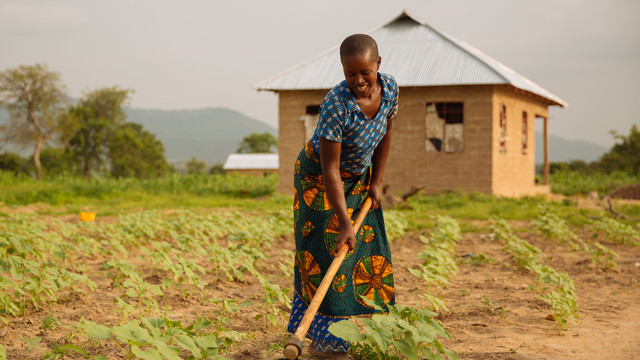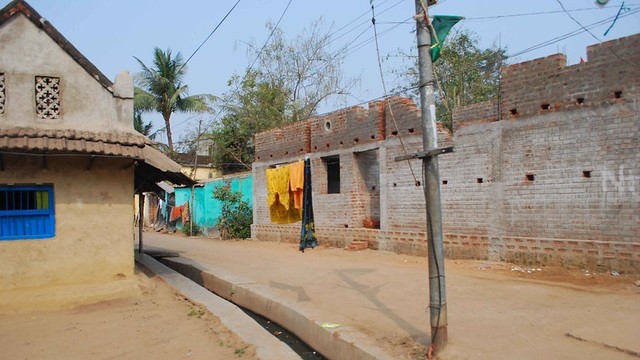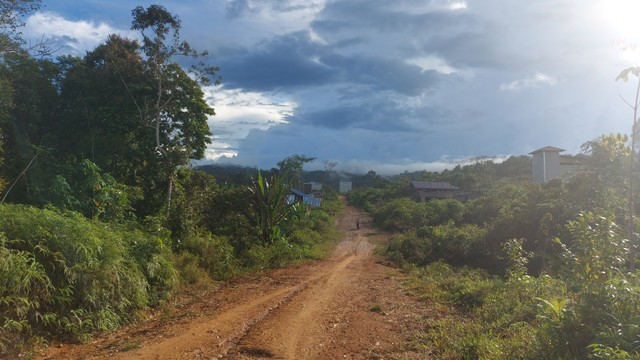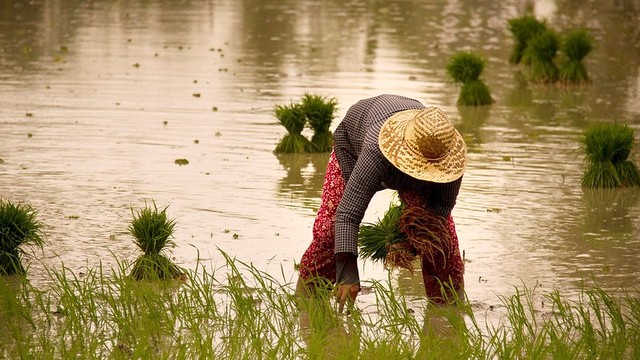What women want
What would women in sub-Saharan Africa propose this leap year? IIED's legal tools team asked what women would like to happen when their communities are affected by land deals.


African women provide the majority of food production labor in the family, but do not necessarily own the land. Research has shown that ensuring land rights for women, such as these Kenyan farmers, can positively influence food security and economic development (Photo: Bonnie McClafferty/IFPRI, via Flickr, CC BY-NC-ND 2.0)
This year, 2016, is a leap year and on 29 February, according to Irish tradition, women can propose to men. An opportunity which comes once every four years. In light of this tradition, in IIED's Legal Tools team, we have been reflecting on what women would propose in relation to their land rights.
And, according to our research, it's not just the right to make a marriage proposal once every four years.
Women want to be involved in discussions about land use change
Our work on gender, land and accountability, which looks at large-scale land acquisition processes in sub-Saharan Africa, has highlighted a lack of opportunities for women to be involved in key discussions that affect their livelihoods.
Consultation processes between investors and local communities commonly rely on traditional land governance structures, which are led by men. When it comes to land issues, men are considered to be the official owners of the land, and to represent the wider communities.
These consultations between local communities and investors are crucial as this is when the implications of the changes proposed by investors on land use and livelihoods are discussed. They are the opportunity for the community members to put forward demands and to highlight key needs.
All too often, only men are involved in these discussions, and women's voices are excluded. This can have long-term and deeply felt impacts on their lives and livelihoods.
Women want a voice in consultations
Our work in sub-Saharan Africa has highlighted that women want their voices to be heard, and in particular that they want to have a say about the changes that are taking place in their communities.
Rural women have important contributions to make about the changes taking place on their land, especially as they play key roles in providing for their families and often use land for different needs to men.
IIED brought together NGO practitioners from across Africa at a learning event in Tanzania in December, where we identified a number of key practical steps that civil society organisations, governments and investors can take to facilitate women's involvement in negotiation processes.
Key practical steps include:
- Understand the socio-cultural context: the local culture is key to understand current land ownership models and practices, as well as to identify which particular steps may be needed to avoid limiting women's involvement in consultations
- Involve men and key authority figures: gender issues are not only about women. Men need to understand the value of an inclusive negotiation process, and this is especially true for traditional and religious leaders, or other figures of authority. Civil society organisations can play an important role ahead of discussions to support a fully inclusive process
- Provide logistical support: in many cultures women are responsible for childcare and other duties at home and on the farm. This limits their time and availability to be involved in consultations. They may need childcare and transport to make it easier for them to attend and to minimise the impact on their farming activities
- Assure implementation of laws and policies: in the countries where we are working there are laws which provide for gender equal participation. However, there remains a large gap between law and practice. Governments could require investors to consult women regarding land acquisitions, or more efforts could be made to implement existing laws at national and local level, and
- Investors take pro-active steps towards inclusive consultation: it is important that investors develop their own practices to ensure that women are automatically consulted about decisions concerning their land and livelihoods. While this may seem extra work, there are long-term benefits to having women's perspectives included in discussions from the beginning. (See an example from Papua New Guinea: We want what the Ok Tedi women have!
Women want to learn the skills to be leaders
Our discussions highlighted that getting women to the table is only the first step. In order for them to participate fully, they need support in skills such as legal literacy, negotiation and leadership to be able to get their points across.
This is especially important where cultural practices discourage women from expressing their opinion.
The above steps are not exhaustive, but they do show how more inclusive practices can easily be developed by investors, civil society organisations and governments. When it comes to land deals that affect the land where they live and farm, women have opinions and ideas about what development should look like.
Women want their views and interests about land change heard and considered. That is our proposal for this leap year.
Catriona Knapman (catriona.knapman@iied.org) is a researcher in IIED's legal tools team.
About the author




